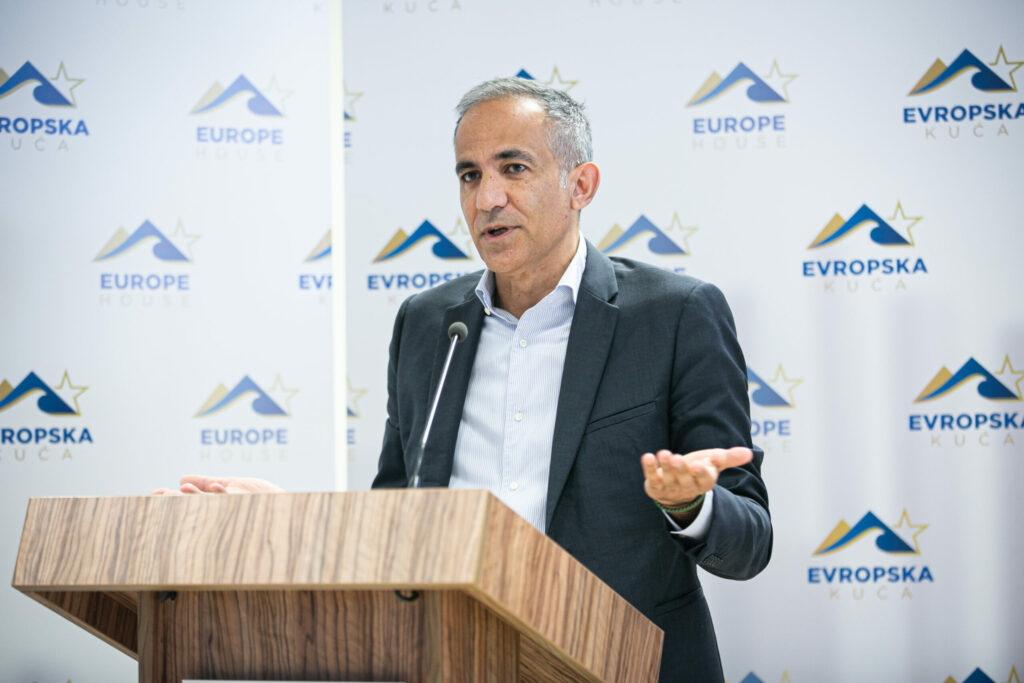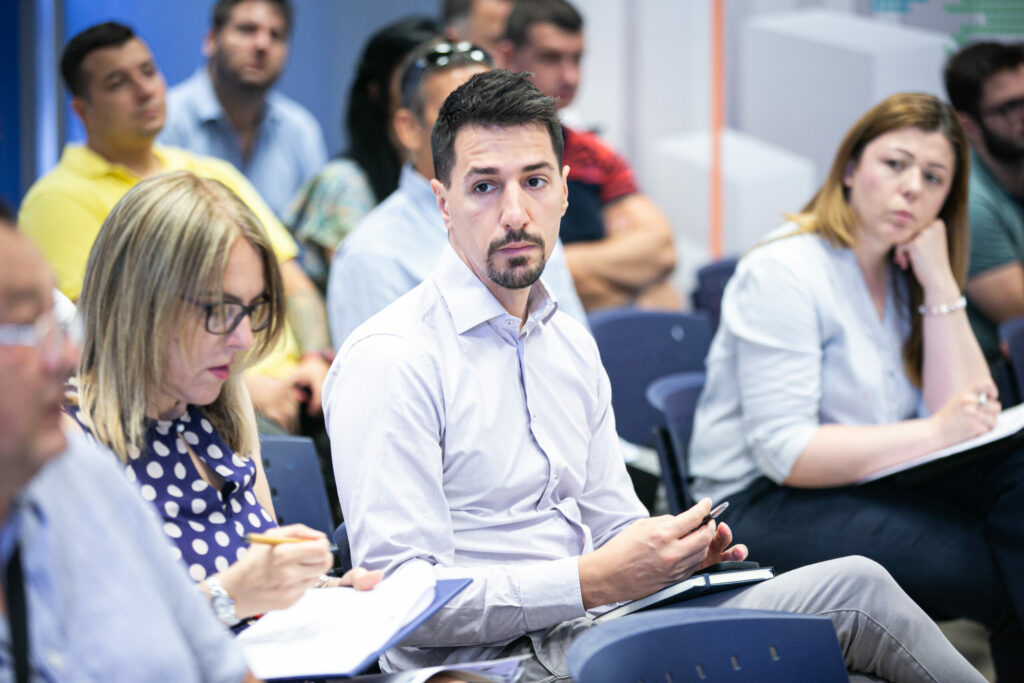The Delegation of the European Union to Montenegro and the Chamber of Economy of Montenegro organised “The Entrepreneurship Caravan” at Europe House to commemorate the Day of Micro, Small, and Medium-Sized Enterprises (MSMEs).
“The European Union wants to support Montenegrin entrepreneurs and help create a more favourable business environment. The EU has designed a range of support programmes for the business community, including non-refundable grants, loans, and guarantees. The EU’s Economic and Investment Plan aims to provide nine billion Euros in non-refundable funds for the Western Balkans region, and Montenegro will be an important part of it,” said Deputy Head of the Delegation of European Union to Montenegro, Riccardo Serri.

The Chamber of Economy of Montenegro is actively involved in the implementation of EU projects.

“Through project activities, we work on enhancing the capacities of MSMEs. It is crucial for MSMEs to know more about the opportunities offered by European programmes, which is why the Chamber of Economy of Montenegro, with the support of the EU, has been organising EU Projects Fair for the past three years. This year, the caravan will be held in September,” highlighted Tanja Radusinović from the Chamber of Economy of Montenegro.
The event presented opportunities for MSMEs within several European Union (EU) programmes.
Dušan Polović from the Ministry of Public Administration presented the Digital Europe programme. “Digital Europe is a new EU programme focused on introducing digital technology in the public administration, for citizens and businesses,” said Polović.

Participants had the opportunity to learn more about the opportunities offered by the EU in partnership with the European Bank for Reconstruction and Development (EBRD) through representatives Matija Dautović and Selma Demirović from the EBRD.
The Programme for the Enhancement of Competitiveness of Small and Medium-Sized Enterprises (SMEs) combines loans from the European Bank for Reconstruction and Development (EBRD) and non-refundable funds financed by the EU, which have become available to companies in Montenegro through a partnership with the CKB Bank.
“Through this programme, companies can apply for investments in new equipment and business modernisation, which can help increase their productivity, reduce operational costs, improve energy efficiency, and enhance compliance with EU standards,” said Demirović.
Companies also have access to the Small Business Advice programme for improving their business operations.
“The EBRD in Montenegro has been implementing this programme since 2002, and they have supported over 800 companies in improving their businesses. Through this programme, the EBRD also organises numerous trainings for companies and consultants on various topics,” emphasised Dautović.

One of the programmes presented was ERASMUS for Young Entrepreneurs, an exchange programme for entrepreneurs that provides an opportunity for new or potential entrepreneurs to develop business ideas by learning from experienced entrepreneurs about business management.
According to Kerim Međedović from the Local Democracy Agency, ERASMUS is implemented in 45 countries, including 26 EU countries, Albania, Armenia, Bosnia and Herzegovina, Iceland, Kosovo, Moldova, Montenegro, North Macedonia, Serbia, Turkey, and Ukraine.

The Single Market programme, which represents an important support mechanism for SMEs, is also available.
Montenegro is the first country in the Western Balkans to join this programme worth €4.2 billion.
Ivana Tomašević, Director of the Business Start-up Centre, presented the European Enterprise Network, which operates within the framework of the Single Market programme. It provides assistance to companies in innovation and in expanding their business to international markets.

“It is the world’s largest network supporting small and medium-sized enterprises,” highlighted Tomašević.
In addition, the Ministry of Science and Technological Development implements programme lines to support participation in international innovation support programmes, as presented by Savica Vujičić.

This includes support for participation in Pillar III of the Innovative Europe EU Framework Programme for Research and Innovation – Horizon Europe. The Ministry of Science and Technological Development has allocated €50,000 for new projects under this programme line for this year.
“The goal is to co-finance preparatory activities for project applications through this segment of the competition, and to encourage the participation of Montenegrin institutions in this highly competitive and the EU’s largest programme for research and innovation,” emphasised Vujičić.
The event dedicated to EU programmes for MSMEs concluded with successful user stories that participants had the opportunity to hear firsthand.
